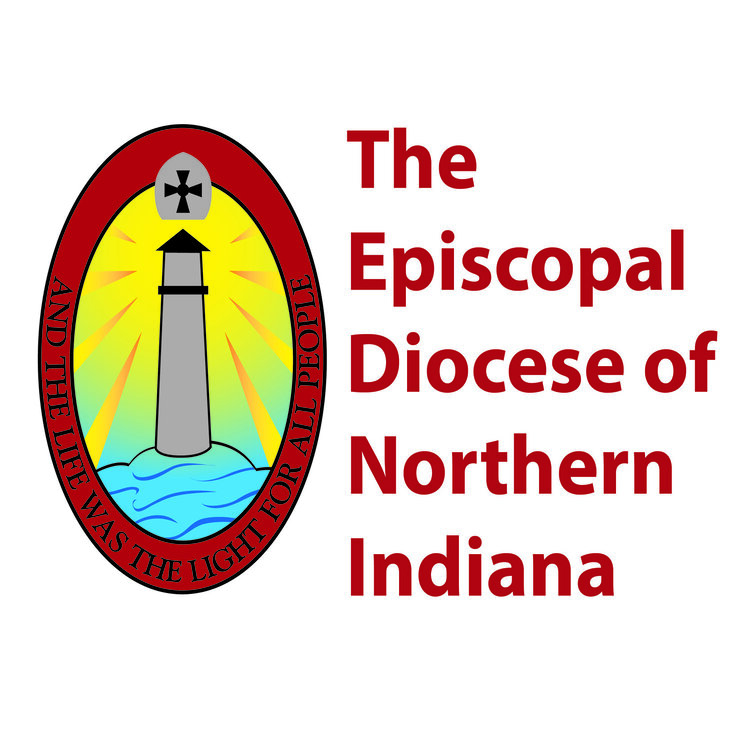The Formal Complaint Process in the Episcopal Diocese of Northern Indiana
As much as we would all like to imagine our life together in the church as one of thoughtful behavior within a supportive environment that promotes peace and harmony, questionable conduct may occur within any faith community from time to time. Although most concerns can and should be addressed through either preventative action or direct communication with the person whose behavior has raised a concern, some concerns require intervention from someone in a supervisory capacity. In parish life, the priest performs that supervisory role. When the concern is about the behavior of a priest or deacon, the diocese holds responsibility for supervision.
More often than not, the diocese exercises that supervisory responsibility through its bishop or one of the bishop's delegates. These people provide the clergy and lay leadership with guidance and pastoral care in the resolution of concerns and the reconciliation of differences. Should the conduct appear to involve involve a canonical offense (see below), the diocese will make use of a disciplinary structure which involves its Bishop(s), its Intake Officer(s) and its Disciplinary Board.
Joint Disciplinary Board
The Episcopal Diocese of Northern Indiana maintains a joint Disciplinary Board with the Diocese of Indianapolis, as governed by Canon 12.2 of the Canons of both dioceses. The board consists of nine members. Current members from the Episcopal Diocese of Northern Indiana are The Rt. Rev. Dr. Douglas Sparks, The Rev. Cn. Terri Bays, PhD (2025), Mr. Stephen Drendall (2025), The Rev. Cn. Dr. John Houghton (2025), and Mr. Bruce Krueger (2025).
Intake Officers
The Intake Officer of a Diocese is a person or persons appointed to receive and process complaints regarding possible canonical offenses (see below) against members of the clergy. By Canon, any person other than the Intake Officer who receives information regarding an offense must promptly forward the information to the Intake Officer. Because it is then important that an intake officer be available to make a prompt response to any canonical complaint, the Episcopal Diocese of Northern Indiana has one intake officer:
Mrs. Susan Czolgsz (847-209-6191)
To begin the process of filing a complaint with either intake officer, please email them by clicking the link on the officer's name above, leave a message for them at the diocesan office (574-233-6489) or notify them by mail at the diocesan office (117 N. Lafayette Blvd. South Bend, IN 46601). Upon learning that there is a complaint to be filed, the Intake Officer will take statements from the complainant and any other persons involved in the situation in order to determine whether the charges, if true, would constitute a canonical offense.
What is a "canonical offense"?
What the church calls a "canonical offense" is any behavior that violates Canon IV.4 of the Constitution and Canons of the Episcopal Church. Canon IV.4 requires that any member of the clergy:
(a) respect and preserve confidences of others except that pastoral, legal or moral obligations of ministry may require disclosure of those confidences other than Privileged Communications;
(b) conform to the Rubrics of the Book of Common Prayer;
(c) abide by the promises and vows made when ordained;
(d) abide by the requirements of any applicable Accord or Order, or any applicable Pastoral Direction, restriction on ministry, or placement on Administrative Leave issued under Canon IV.7;
(e) safeguard the property and funds of the Church and Community;
(f) report to the Intake Officer all matters which may constitute an Offense as defined in Canon IV.2 meeting the standards of Canon IV.3.3, except for matters disclosed to the Member of Clergy as confessor within the Rite of Reconciliation of a Penitent;
(g) exercise his or her ministry in accordance with applicable provisions of the Constitution and Canons of the Church and of the Diocese, ecclesiastical licensure or commission and Community rule or bylaws;
(h) refrain from:
(1) any act of Sexual Misconduct;
(2) holding and teaching publicly or privately, and advisedly, any Doctrine contrary to that held by the Church;
(3) engaging in any secular employment, calling or business without the consent of the Bishop of the Diocese in which the Member of the Clergy is canonically resident;
(4) being absent from the Diocese in which the Member of the Clergy is canonically resident, except as provided in Canon III.9.3(e) for more than two years without the consent of the Bishop Diocesan;
(5) any criminal act that reflects adversely on the Member of the Clergy's honesty, trustworthiness or fitness as a minister of the Church;
(6) conduct involving dishonesty, fraud, deceit or misrepresentation; or
(7) habitual neglect of the exercise of the ministerial office without cause; or habitual neglect of public worship, and of the Holy Communion, according to the order and use of the Church; and
(8) any Conduct Unbecoming a Member of the Clergy.
Many types of behavior may be wrong, and even illegal, without constituting a canonical offense. Most notably, the disciplinary canons of the church govern only the conduct of the clergy and not that of lay leadership and staff. The canonical disciplinary process in no way takes the place of any legal action which may also be called for by the situation.
Finally, it is extremely important to note two distinctions regarding the diocesan complaint process. First, damage is done to a faith community by the conduct of an offense, not by the process of lodging a complaint about that offense. Second, the disciplinary process of the church is one that points towards reconciliation, restitution and healing. All persons involved in a disciplinary process may be assured of the ongoing prayers of the Bishops, the Intake Officers and the Disciplinary Board.
